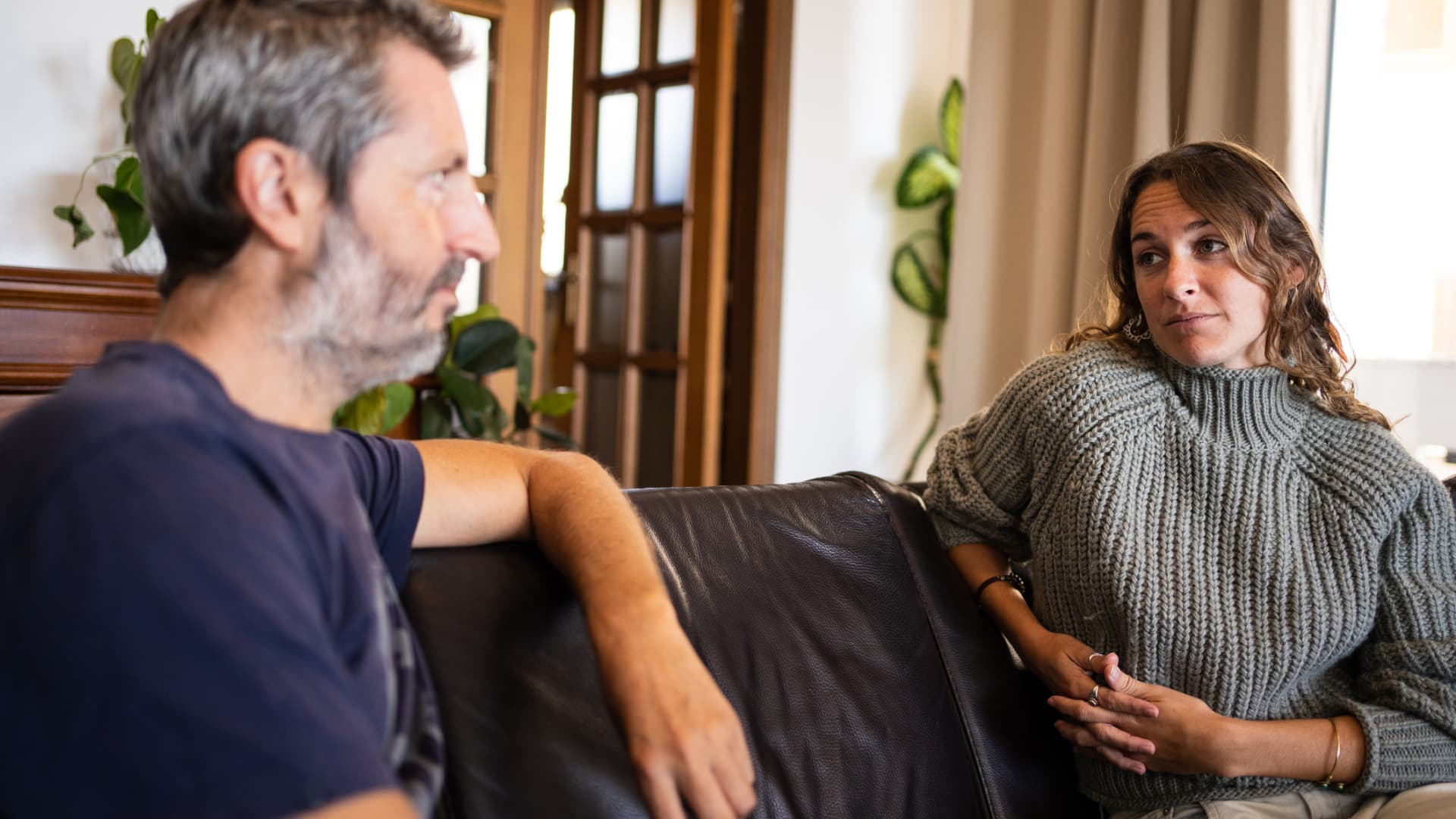In long-term relationships, it’s very common for people to link their unhappiness to their partner’s actions. They think, “if my partner texted me every morning I’d feel less anxious,” or “if my partner wanted to travel more I’d feel more stimulated.”
But those feelings of unfulfillment or dissatisfaction might not have anything to do with a partner at all, says Lisa Marie Bobby, psychologist and founder of Growing Self Counseling & Coaching in Denver.
“I very commonly see people using false logic when it comes to their relationships,” Bobby says. “That the way they feel is because of some external circumstance.”
This could lead a person to ask their partner to shift some behaviors in an effort to alleviate their own relational anxiety. This is not only unfair to a partner, but generally ineffective.
Instead of asking your partner to change, Bobby suggests asking yourself one question: “What is it about me, my way of thinking, my core beliefs, my emotional management skills or lack of them, that makes me feel kind of ‘meh’ in the context of a perfectly nice marriage?”
The ‘false logic’ trap
Let’s say your partner is spending a lot of time at work and with friends. You might start to feel neglected and tell yourself that if they just spent more time with you, you’d be happier.
This, Bobby says, is the “false logic” trap.
“The false logic would be, ‘if I were with a different person I wouldn’t feel abandoned anymore,'” Bobby says. “In my experience, you would totally feel abandoned. It would just be for a different set of reasons.”
What is it about me, my way of thinking, my core beliefs, my emotional management skills or lack of them, that makes me feel kind of “meh” in the context of a perfectly nice marriage?
Lisa Marie Bobby
psychologist
Attempting to change your own emotional state by controlling your partner’s behavior does not work.
“Whenever people externalize the way they feel, it creates this really difficult dynamic where people attempt to change their circumstance as a way to change their own emotional experience,” Bobby says.
But a partner is not there to regulate your emotions. That’s why it’s important to ask yourself what actions you can take to make yourself feel happier, and not saddle your partner with that labor.
DON’T MISS: Want to be smarter and more successful with your money, work & life? Sign up for our new newsletter!
Get CNBC’s free Warren Buffett Guide to Investing, which distills the billionaire’s No. 1 best piece of advice for regular investors, do’s and don’ts, and three key investing principles into a clear and simple guidebook.





More Stories
US ambassador to Japan visits southern islands at the forefront of China tension – Times of India
Singapore to resume flying F-16 jets after crash this month – Times of India
Nearly 10,000 evacuated in Ukraine’s Kharkiv region: Governor – Times of India